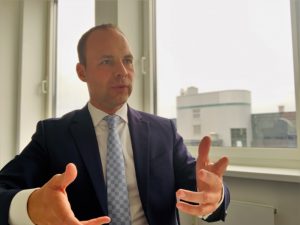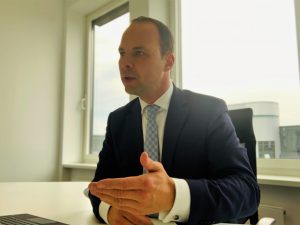"Non-Executives can only address problems in the Corona crisis at an early stage based on expertise"
Interview with Dr. Rüdiger Theiselmann on restructurings in the Corona crisisBy Barbara Kubitza
The Corona pandemic has plunged many companies into crisis. Especially in these days, non-executive directors are expected to actively support the senior management with knowledge and constructive proposals for restructuring. In light of the Board Academy’s Finance Module from 18 to 20 June 2020, Dr. Rüdiger Theiselmann explains key factors of non-executive directors in Germany.
Dr. Theiselmann, you worked on major restructurings during the financial market crisis of 2008/2009 – what is different now in the Corona crisis and what does this mean for supervisory boards?
Theiselmann: The current crisis has affected the world economy across sectors and has therefore a much broader impact. In addition, the stock markets collapsed in 2008/2009 after the Lehman breakdown followed by restricted lending from banks whereas the operating business of their corporate clients itself continued and only deteriorated gradually in certain sectors. This is different now because at the beginning of the Corona crisis, revenues collapsed all of a sudden, supply chains were interrupted and operations have only starting slowly again. The resulting abrupt liquidity constraints are a major difference. In addition, restructurings in 2008/2009 were predominantly related to financial stabilization and reorganization of financial structures. Today also digital transformation must be pushed forward in parallel under high pressure with all efforts because the lockdown severely limits physical contacts. This new degree of complexity calls for new competencies in management, but also in supervisory boards.
What skills should non-executive directors have now?
Theiselmann: When appointing the supervisory board, the Chairman should on the one hand ensure that candidates also have proven  turnaround experience. This applies to both industry-specific operational and financial restructurings. On the other hand, candidates should know from their own experience as executives or entrepreneurs how digitalization is being implemented operationally, what procedural pitfalls might occur, how employees can be motivated for change processes, how to introduce digital products and services during ongoing business operations and also how to successfully organize digital sales. Since there are very few people who combine all these skills, the supervisory board should consist of candidates with versatile backgrounds.
turnaround experience. This applies to both industry-specific operational and financial restructurings. On the other hand, candidates should know from their own experience as executives or entrepreneurs how digitalization is being implemented operationally, what procedural pitfalls might occur, how employees can be motivated for change processes, how to introduce digital products and services during ongoing business operations and also how to successfully organize digital sales. Since there are very few people who combine all these skills, the supervisory board should consist of candidates with versatile backgrounds.
Non-executive directors need to be enabled to ask the right questions.
What role do professionalization and trainings of supervisory board play in these days in Germany?
Theiselmann: A very important role. Ten years ago, we founded the Board Academy also as a consequence of the financial market crisis in order to professionalize the work of committees and to enable non-executive directors ask the right questions. This proves to be important in these days because of the complexity I just mentioned. If non-executive board members are aware of certain characteristics of financial instruments, such as the individual termination right or the margin step-up in terms of German private placements or solutions for securing liquidity, they can address these challenges at an early stage and come up with constructive proposals. But this can only happen if one gains this working knowledge. And that’s exactly why the Board Academy was established ten years ago.
Which topics are of special importance in the Corona crisis from your perspective?
Theiselmann: In my advisory practice and as a non-executive board member I currently see increasing need for information regarding legal obligations and solutions in the crisis. Many German mid and large caps are currently playing through scenarios and are examining whether they can implement restructuring by way of protective shield or self-administration proceedings. In addition, from August 2020 onwards, numerous German boards of directors are expected to prepare intensively for an orderly insolvency from the first half of October, provided that the German legislator does not extend the suspension of the insolvency application obligation beyond 30 September 2020.
Complexity of financial restructurings has increased significantly also for SME.
 What exactly should the Supervisory Board know about financial restructurings?
What exactly should the Supervisory Board know about financial restructurings?
Theiselmann: Since the zero interest rate policy of the central banks and hence cheap money have led to a significantly increasing financial leverage of many companies over the last years, it is often a question of debt capital restructuring: e.g. deferral of loans and interest rates, restructuring loans, extension or shifting maturities of loans and bonds.
But these topics were already relevant ten years ago…
Theiselmann: True, but the complexity of financial restructurings has also increased significantly in terms of small and mid caps if bonds or private placements have been issued in the past. In this case, it is more difficult to reach a common sense because of the large number of creditors compared to a small bank consortium. And, as said, this does not only apply to listed blue chips but also to typical medium-sized companies.
Acquisition finance should be addressed at an early stage during M&A projects these days.
Every crisis also leads to opportunities – are there now attractive situations for takeovers and what should non-executives know about this in terms of financing?
Theiselmann: Of course, the Corona crisis means that companies with an interesting business model or attractive assets will be up for sale at comparatively low valuations. In my view, however, this will only happen in a time-delayed manner due to state support programs, probably from autumn 2020 onwards. At the same time, non-executives on the buyer’s side should also address the question of acquisition finance at an early stage these days: how shall the takeover be refinanced? Banks are, at least for the time being, very restrictive as far as lending is concerned. On the other hand, the bond market is receptive again but only for large caps and blue chips.
The Board Academy’s Finance Module will take place shortly. What can participating board members expect?
Theiselmann: During the fireside chat, Luc Hendriks from Triton Partners will talk about his experience as non-executive director in the private equity environment. On the following day, I will shed light on the economic and legal framework of corporate finance solutions along the balance sheet and financial restructurings. On the second day, my former Commerzbank colleagues will go into detail about M&A (Dr. Olaf Schween), bonds (Karin Arglebe/Hartmut Buscher) and syndicated loans (Alexander Gillhausen). In addition, there will be an opportunity for networking and exchanging extensively – this also works with due distance even in times of Corona.